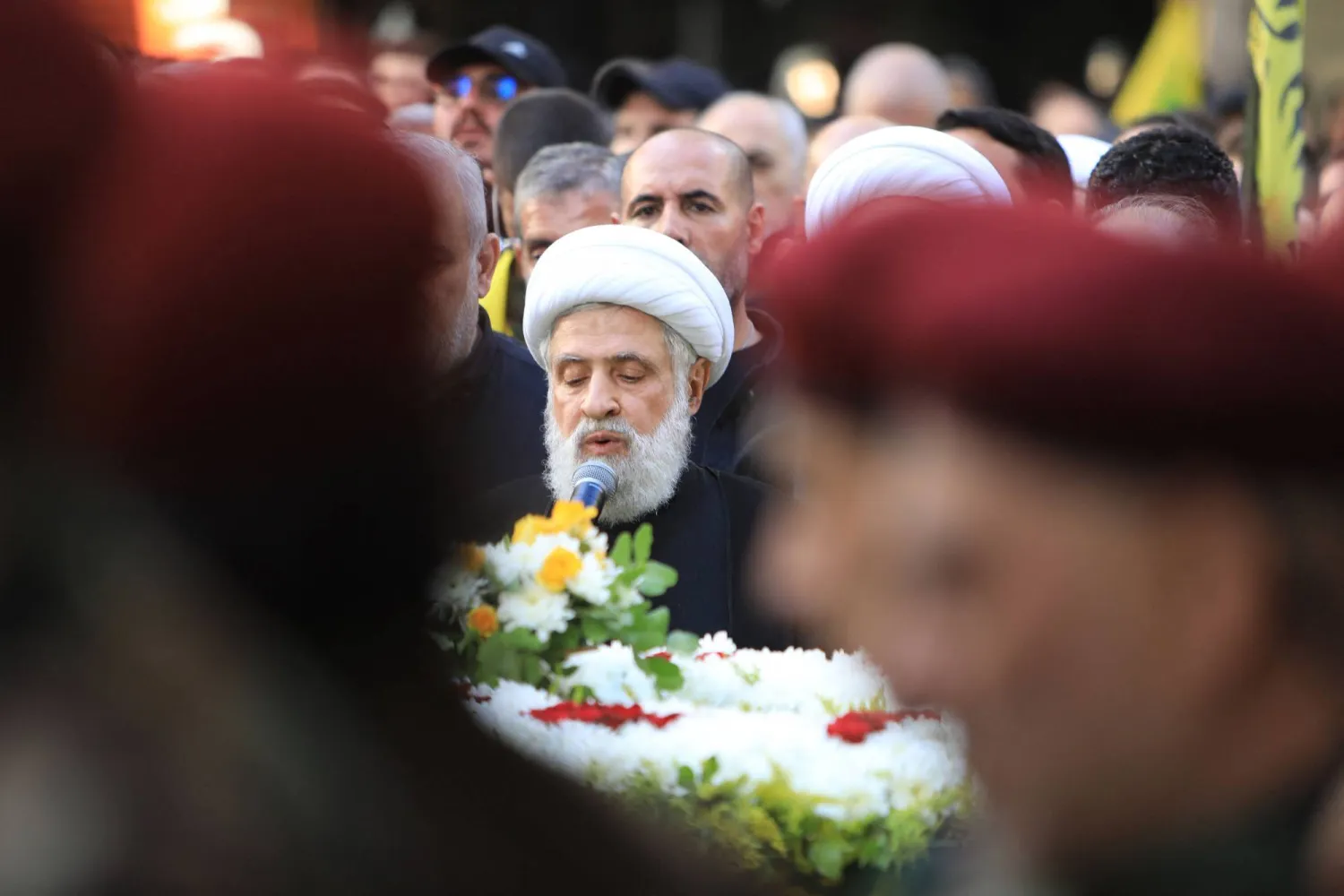Hezbollah's deputy leader, Naim Qassem, declared on Sunday that the group is now in an “open-ended battle of reckoning” with Israel, and he vowed to prolong the misery of those displaced from the country's north.
Qassem spoke at the funeral of Hezbollah's senior commander and founder of the elite Radwan forces Ibrahim Aqil.
Israeli Defense Minister Yoav Gallant said operations would continue until it was safe for evacuated people on his side of the border to return.
The conflict - which sharply escalated over the past week - has raged since Iran-backed Hezbollah opened a second front against Israel, saying it was acting in solidarity with Palestinians facing an Israeli offensive further south in Gaza.
On Tuesday and Wednesday, thousands of pagers and walkie-talkies used by Hezbollah members exploded in an attack widely blamed on Israel.
The next day, Israel launched its heaviest bombardment of Lebanon yet. Friday saw Aqil killed along with several other senior Hezbollah military figures in a strike on Beirut's southern suburb.
Saturday again saw unprecedented bombardment that the Israeli military said struck around 290 targets, including thousands of Hezbollah rocket launcher barrels.
Qassem said Israel was seeking to paralyze the group, but would not succeed.
He added that Israel's escalation of the conflict would lead to further displacement of its own citizens.
“We admit that we are pained. We are humans. But as we are pained, you will also be pained,” Qassem warned.
He has said Hezbollah will stop attacking northern Israel only if the country can reach a ceasefire in the Gaza Strip with Hamas.
Israel has closed schools, restricted gatherings in the north and ordered hospitals there to move patients and staff to protected areas - many have secured or underground facilities designed to withstand rocket fire.
Air raid sirens sounded constantly in Israel on Sunday. About 150 rockets, cruise missiles and drones were fired at Israel overnight and into Sunday, most of which were intercepted by air defenses, including an "aerial target" that came from the east, the military said.
Several buildings were struck, including a house badly damaged near the Israeli city of Haifa. Rescue teams treated wounded but there were no reports of deaths. Residents had been instructed to stay near bomb shelters and safe rooms.
Hezbollah said it hit a barracks and another Israeli position with squadrons of attack drones on Sunday, and also launched rockets at military-industrial facilities in an "initial response" to the device attacks last week.









